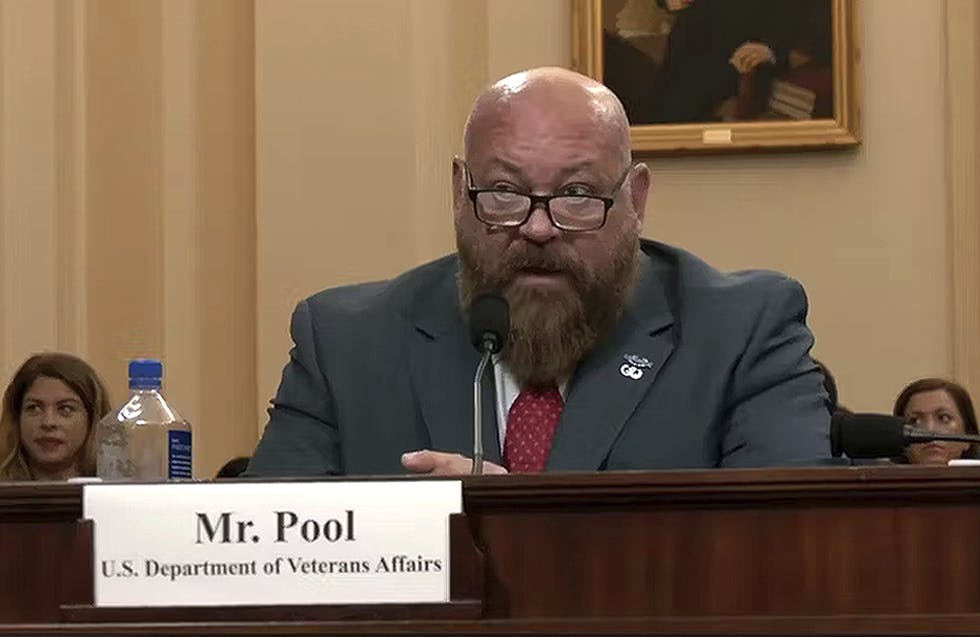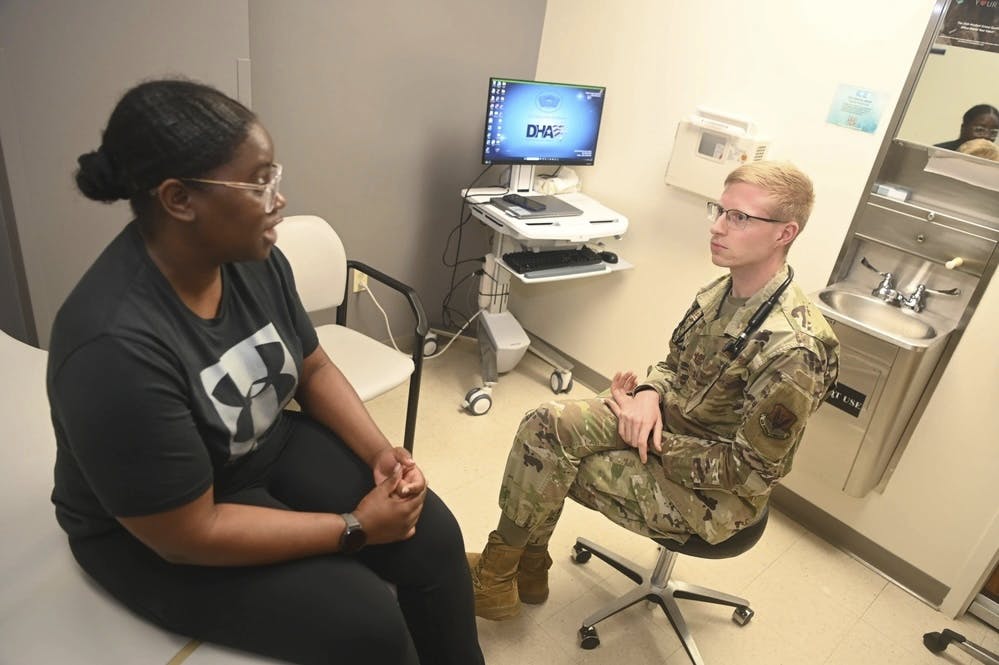DHA Official: Optimization is ‘Future’ of Federal EHR
Defense Healthcare Management Systems Program Officer Dr. Yvette Weber says usable information across health systems is key to clinical care.

The Defense Department’s health agency wants to optimize shared data to strengthen patient care as part of its participation in the federal electronic health record modernization (FEHRM), Dr. Yvette Weber, program executive officer for the Program Executive Office at Defense Healthcare Management Systems, said Tuesday during an update on the shared record.
“We are excited with full deployment – 100% use of [common DOD record of medical and dental information] MHS Genesis. We’re just really scratching the surface on a truly rich set of data,” said Weber. “Deployment was our first priority, but optimization is where we’re headed into the future.“
Weber said that Defense Health Agency (DHA) releases two capabilities each year, with the most recent one spanning several platform and infrastructure upgrades. Weber said that the optimization of services spans nutrition management, patient data interoperability and billing interfaces.
“We’re constantly looking at ways to upgrade,” Weber added. “We’re trying to do that at the speed that the users really need these upgrades to happen.”
Weber added that her office is using a continuous improvement program to modernize DHA processes to connect with FEHRM. Agile improvement, she said, is the next step in the patient and provider experience.
“We’re using a continuous integration and continuous improvement program,” said Weber. “We’re constantly looking at ways to upgrade, and we’re trying to do that at the speed that the users really need these upgrades to happen.”
Officials said that EHR relies on usable data to operate and cited programs across government that aid in EHR interoperability. Tara Reavey, chief of the Policy and Program Management section of the DHA Immunization Healthcare Branch, said that the Centers for Disease Control and Prevention’s (CDC) Immunization Information Systems (IIS) Immunization Gateway has been integral in helping clinicians eliminate time spent on administrative tasks.
“The ability to build a more comprehensive immunization record for our patients and the reduction in workload for transcription has been the most-cited benefits for our health care team,” Reavey said. “The ease of access to these digital records through the IIS allows our clinicians to then have timely discussions during their appointment around the immunizations an individual would need based on their health status or age, lifestyle factors or occupation.”
Interoperability is critical
The CDC system is available to providers across different organizations and health systems, making immunization records more easily accessible for patients of DHA and Department of Veterans Affairs clinics, Reavey said. Interoperability is critical for public health analytics and health outcomes, she said.
“Many schools, employers and other health care groups routinely access the IIS system to view immunization data for their populations,” said Reavey. “With DOD and VA now participating, we’re helping remove the burden on our beneficiaries to gather the paper records and then have to transport them to those outside sources.”
Clinicians and health systems need access to usable FEHRM data on-site, in theater and in virtual health settings, Weber said. Combat environments present a specific challenge, Weber said, and DHA is looking to extend the federal EHR to deployed members throughout the world in challenging and sometimes remote situations.
“This is a complex ecosystem and these tools need to work in austere and low- and no-comms environments to be interoperable with one another,” Weber said.
She added that DHA is beginning work on a care delivery platform to connect data and combat environments back to MHS Genesis that will be available for deployment next year.
“We are in the midst of testing our tools through an operational assessment and then operational tests later this year, which will lead to a deployment of our tools in 2025,” said Weber. “When our tools are deployed, we will be able to trace care all the way from role one through role four back to garrison. It’s going to be a phenomenal opportunity to make sure we’re enhancing our patient care.”
DHA is migrating data from FEHRM into the military health information platform to supports data analytics, she added. Better care needs operable data everywhere, she emphasized.
“We’ve turned our attention to optimizing the system and the data that the system provides,” Weber said. “We can really use that to tune the system to make it more usable and a better experience.”
This is a carousel with manually rotating slides. Use Next and Previous buttons to navigate or jump to a slide with the slide dots
-

VA's Platform One Powers Rapid Innovation to Bolster Digital Services
VA's Platform One accelerates software development timelines from weeks to hours, ultimately enhancing digital services for veterans.
5m read -

Doing More with Less is Muscle Memory for IRS, Former Deputy CIO Says
Darnita Trower discusses her experience, the legacy she’s left behind and how she pushed the IRS to modernize itself,
20m watch -

VA CIO Targets Modern IT and Smarter Workforce Alignment
Agency leaders told lawmakers they are focused on trimming legacy systems and restructuring its workforce to streamline operations.
3m read -

The Next AI Wave Requires Stronger Cyber Defenses, Data Management
IT officials warn of new vulnerabilities posed by AI as agencies continue to leverage the tech to boost operational efficiency.
5m read -

Trump Executive Order Boosts HBCUs Role in Building Federal Tech Workforce
The executive order empowers HBCUs to develop tech talent pipelines and expand access to federal workforce opportunities.
3m read -

IHS Prepares to Deploy PATH EHR at Pilot Sites in 2026
IHS targets PATH EHR pilot in 2026, emphasizing governance, collaboration and interoperability as key pillars of the modernization strategy.
4m read -

DOI Must Modernize Energy to Win AI Race, Secretary Says
Doug Burgum links AI innovation to energy reform as DOI advances digital infrastructure and wildfire response under Trump’s tech agenda.
2m read -

FEHRM CTO Targets Two-Year Cloud Migration for Federal EHR
Lance Scott touts new EHR tech advancements, including cloud migration, expanded data exchange and AI integration to improve care delivery.
4m read -

VHA’s AI Chief Led NIH’s New AI RFI
The agency's AI chief Gil Alterovitz helped develop a plan that hints at how NIH is charting the future of AI and biomedical research.
5m read -

VA Plans Future EHR Deployment on Facility Relationships
VA’s EHR program is expected to restart in 2026 and will plan deployment based on pre-existing relationships between facilities to drive interoperability.
21m watch -

Trump Taps Maj. Gen. John Bartrum to Lead VHA
Nominated for VA's top health role, Bartrum brings over four decades of military and public service to the agency.
3m read -

AI Growing in Focus Amid HHS Restructure
Department of Health and Human Services officials see promise in artificial intelligence amid efficiency goals.
4m read
















